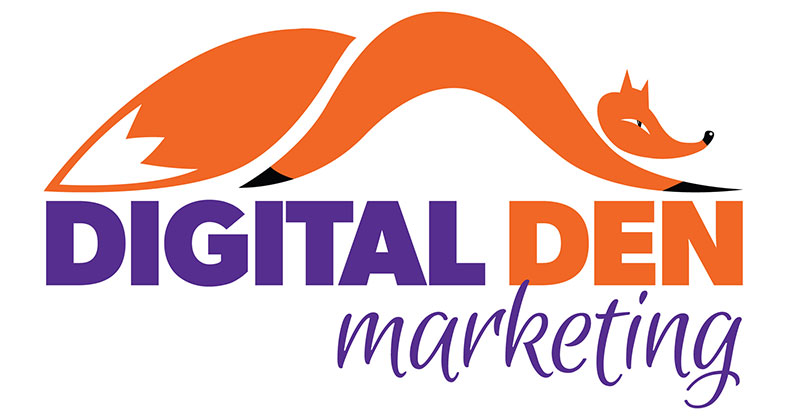In the age of digital media, we’ve all become content creators and online publishers, both in our personal and professional lives. We post on Facebook and Instagram, tweet on Twitter and create blogs to share the stories of our personal and professional lives. But how good is your spelling and grammar and how professional will you appear to the reader after they have consumed your content?
A flair for copywriting has long been an essential skill for marketers (and indeed any professional), and one that appeared on every marketing job specification for many years. Although image and video content are often the things that capture our attention in our social media news feeds, the right words to introduce the content have equal weighting in terms of the overall value of the content to the viewer. These words join the dots between the elements of your content and set the scene.
Does Good Spelling and Grammar Really Matter?
As a marketer, good spelling and grammar is essential. How impressed will a potential customer be if they read your content to find spelling and grammar mistakes? Or perhaps they have to stop to re-read the sentences a few times over to grasp their meaning as the story simply doesn’t flow well. And what if the person reading the words you’ve written is a client who has paid you to write these words on their behalf – how likely are they to recommend you to others or let you loose on their content marketing again if it contains spelling and grammar mistakes?
 My other half is no copywriter but on more than one occasion he has pointed out to me that his friend’s spelling on Facebook is atrocious. I’ve often wondered what other people think about this and stumbled upon this article entitled: Is the Correct Use of Grammar and Spelling Important to You on Social Media? It came with a useful voting tool and these were the results when I submitted my vote – it seems that it does matter to a lot of people!
My other half is no copywriter but on more than one occasion he has pointed out to me that his friend’s spelling on Facebook is atrocious. I’ve often wondered what other people think about this and stumbled upon this article entitled: Is the Correct Use of Grammar and Spelling Important to You on Social Media? It came with a useful voting tool and these were the results when I submitted my vote – it seems that it does matter to a lot of people!
Why are We More Prone to Making Mistakes on Social Media?
With modern day tools like spell checker on your Microsoft Word documents, there is really no excuse for bad spelling and grammar. Tools like this certainly help when writing a blog article, press release, proposal document or tender submission, but nowadays we find ourselves crafting and publishing a lot of content on the go from our tablets and smartphones to our social media channels. There’s no doubt that technology has made it quicker and easier to publish content online but there are downsides. Great content is rarely created quickly, and hastily shared content is more prone to mistakes, particularly on social media. Why?
1. Fat Fingers – our fingers aren’t necessarily fat but our handheld devices are much smaller than the keypad s on our desktop or laptops, therefore it’s easy to tap the letter next to, above or below the one you meant to – pause before publishing and re-read your social media posts before you let them go out onto the world wide web, especially if you are publishing on behalf of a client, business networking group or another page owner.
s on our desktop or laptops, therefore it’s easy to tap the letter next to, above or below the one you meant to – pause before publishing and re-read your social media posts before you let them go out onto the world wide web, especially if you are publishing on behalf of a client, business networking group or another page owner.
2. A busy environment – we often publish content at events, or perhaps it’s a trait of marketers, more so than the average business professional. We take photos, add hashtags to our tweets, quote stats we’ve heard, tag the people we’re with and share our location information, all whilst trying to listen to the speaker. It’s said that women, in particular, are good at multi-tasking but even we have our limits! LinkedIn and Twitter fail us a little here as they don’t have tools to edit the post after publishing like Facebook does, so it’s either a case of quickly delete and re-type or hope no-one notices. And even Facebook’s edit tool isn’t perfect as users can view your edit history, so it’s best to pause before publishing and proof-read.
3. We’re human – in this age of social media, we’re all publishers but we’re not all skilled or experienced copywriters, in the same way that having a driving licence doesn’t make you a brilliant driver. Know your strengths and weaknesses and…… pause before publishing! Even skilled writers and copywriters do it. None of us are immune to making the occasional mistake (including me), but there are ways to minimise these instances and reduce the risk to your reputation. In addition to the spell checker, you can get someone else to proof read your content. I’ve used fellow copywriters to do this for me on occasions, not because I’m worried about my spelling or grammar, but because as a writer you become so familiar with your own content. When you proof-read it yourself you can skim over it too quickly and still fail to see your own mistakes!
So the simple message from this is this – spelling and grammar does matter so pause before publishing. Let me know if you agree. I’d be particularly keen to hear the thoughts of other copywriters and non-professional writers. As a business professional do you notice the spelling and grammar mistakes in the content you read and does it irritate you?
About the Author
Denise Cowan is a Digital Marketing Consultant based in Northern Ireland, specialising in digital strategy, marketing campaign management, content marketing and copywriting. Email denise@digital-den.co.uk if you’d like to discuss anything you’ve read in more detail. Also connect on Facebook, Twitter and LinkedIn.

